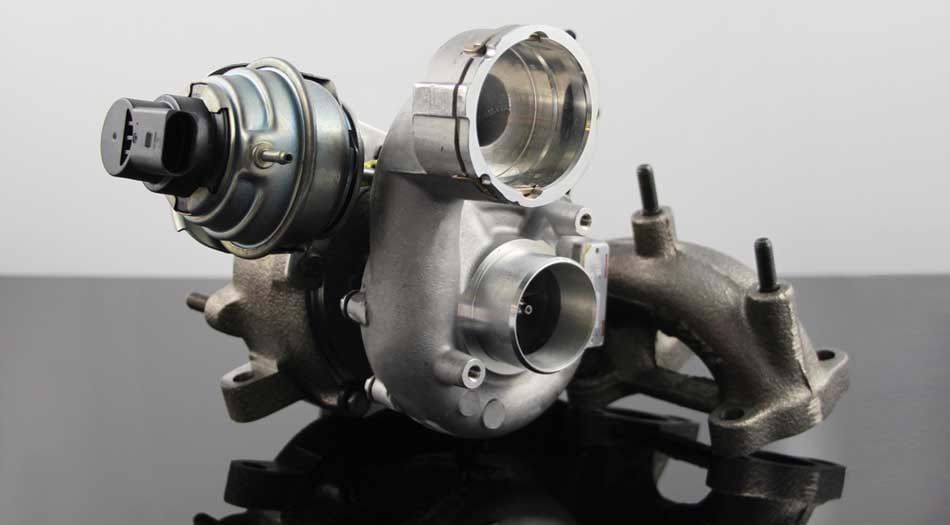Your turbocharger is great for giving your car’s engine a little boost, but what happens if it stops working? If your turbocharger is not working, your car will still run, but it will not be as powerful.
We’ll go over a few things that can cause your turbocharger to stop working.
What Happens When Turbo Stops?
A turbocharger is a component of many modern engines and helps to boost power and performance by forcing extra air into the combustion chamber.
Without a working turbocharger, your engine will have to work harder to produce the same amount of power, leading to increased fuel consumption and slightly lower performance.
Luckily, if your turbocharger stops it won’t damage your engine, but it’s still a good idea to get it fixed as soon as possible.
Signs of Turbo Failure Include:
Blue Smoke
You will notice blue smoke coming from the exhaust once your turbocharger oil seals have started to fail. This smoke happens due to oil leaking into the exhaust system and burning off.
Loud Popping Noises
If you hear loud popping noises coming from the engine bay, it’s likely that something is wrong with the turbocharger. These noises result from a build-up of pressure in the turbocharger housing which then escapes suddenly.
Loss of Power
If your car feels less powerful than usual, it could be a sign that the turbocharger is not working. You may also notice that the engine is louder than normal, as it has to work harder to produce the same amount of power.
What Causes Turbo Failure?
There are a few things that can cause your turbocharger to stop working.
Wastegate
One of the most common causes is a problem with the wastegate. The wastegate is a valve that controls how much exhaust gas flows through the turbine. If the wastegate sticks open, it will cause too much exhaust gas to flow through the turbine, resulting in overheating and damage to the turbo.
Dirty Oil
If the oil in your engine is dirty, it can cause deposits to build up on the turbine blades. Eventually, the buildup will cause the turbo to seize. So, change your oil regularly to prevent this from happening.
Oil Leaks
If there are oil leaks anywhere in the turbocharger system, it can cause the turbo to overheat and fail. Check for oil leaks regularly and fix them as soon as possible. You will know you have an oil leak when you see oil dripping from the turbocharger or smoke coming from under the hood.
Detached Hose
If a hose becomes detached from the turbocharger, it can cause a loss of boost pressure. This loss will result in lower performance and fuel economy. Make sure to check all the hoses regularly to make sure they are properly attached.
Exhaust Leaks
These types of leaks occur between the turbocharger and the exhaust system. If there is an exhaust leak, it can cause the turbocharger to overheat and fail. You will know you have an exhaust leak if you hear a hissing noise coming from under the hood.
Bad Bearings
The bearings in the turbocharger can wear out over time and cause the turbo to fail. If you notice your car is making strange noises, it could be a sign that the bearings are going bad.
What To Do If Your Turbo Stops Working
The first point of action involves the intercooler. In the event of failure, remove the intercooler and the intake system tubes to check for any blockages. If there is blockage, clear it and inspect the turbocharger for damage. If the turbocharger is damaged, it will need to be replaced.
Once you have made sure the intercooler and intake system are clear, you can check the wastegate.
If you don’t know how to find the intercooler, take your car to a mechanic and have them check it for you. Most turbochargers should last the lifetime of the vehicle. However, don’t leave a failed turbocharger in the car.
How To Prevent Turbo Failure
At some point, your turbocharger may wear down, but there are things you can do to extend its life.
The best way to prevent turbo failure is to change your oil regularly and inspect it for issues such as leaks. You should also check the hoses and exhaust system for leaks. If you notice any of these problems, fix them as soon as possible.
Another way to prevent turbo failure is to upgrade the intercooler. The intercooler helps to cool the air that goes into the turbocharger. A bigger and better intercooler will help keep the turbocharger cooler and extend its life.
You Can Fix Turbo Failure
In conclusion, a turbocharger is a vital part of many car engines. If it stops working, it can cause decreased performance and fuel economy without the help of a turbo rebuild shop. Once you notice that your turbo has failed, you should consult an auto professional who can help you.
